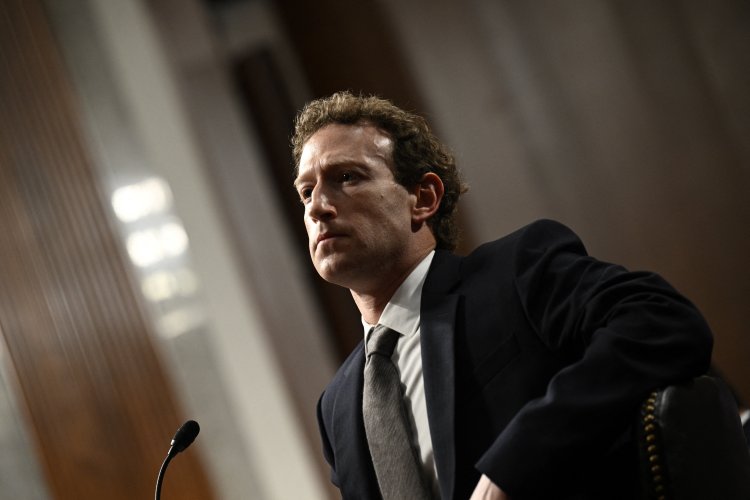Can Meta Withstand Judge Boasberg? The Drama Begins Monday.
A potential breakup of Mark Zuckerberg's social media empire is being considered — or was, prior to Trump. Here’s what to keep an eye on as the trial begins.

If the FTC successfully persuades U.S. District Judge James Boasberg that Meta's acquisition of Instagram and WhatsApp was aimed at establishing an illegal monopoly in social media, the agency would then seek to dismantle Meta CEO Mark Zuckerberg’s meticulously built social media empire.
Such an action would involve breaking up a company valued at $1.4 trillion—a monumental process not seen since the breakup of the telephone monopoly AT&T approximately 40 years ago, representing a significant challenge to excessive corporate influence.
Interestingly, this case was initiated before Zuckerberg fostered a cooperative relationship with President Donald Trump.
Recently appointed FTC head Andrew Ferguson stated that his legal team is “raring to go” against Meta. However, there are emerging concerns that Trump could intervene on behalf of the social media giant. Reports indicate that Zuckerberg met with Trump in the Oval Office earlier this month, ostensibly to discuss a settlement regarding the antitrust case before it goes to trial.
The case has bipartisan origins, having been filed during Trump's first term and subsequently pushed forward by former President Biden's antitrust enforcers. Now, it reaches trial under Ferguson's oversight.
Over the past five years, the case has experienced various ups and downs. Boasberg dismissed the FTC's original case, which allowed the agency to refine its arguments for a stronger case. An unsuccessful summary judgment attempt by Meta in April 2024 was followed by Boasberg's dismissal of that filing in November, eventually leading to a trial date set for April 2025.
In a recent statement, Meta spokesperson Christopher Sgro remarked that the FTC's lawsuit “defies reality,” asserting that the company functions within a competitive social media environment.
Sgro noted, “The evidence at trial will show what every 17-year-old in the world knows: Instagram, Facebook and WhatsApp compete with Chinese-owned TikTok, YouTube, X, iMessage and many others.” He added, “More than 10 years after the FTC reviewed and cleared our acquisitions, the Commission’s action in this case sends the message that no deal is ever truly final.”
Further, he claimed that the FTC “should be supporting American innovation, rather than seeking to break up a great American company and further advantaging China on critical issues like AI.”
The Meta monopoly trial is anticipated to extend into summer, potentially lasting until July. Here are three key aspects to watch as proceedings commence:
Will Boasberg accept the FTC’s argument? The trial will not involve a jury, placing full emphasis on Boasberg, who was appointed in 2011 by former President Barack Obama to the U.S. District Court for the District of Columbia. He is currently in a unique situation, facing off against the Trump administration regarding the deportation of Venezuelan immigrants, which has led Trump to call for his impeachment.
By now, Boasberg has become well-versed in the arguments from both sides. He has previously expressed skepticism regarding the government's claim that Meta's 2012 acquisition of Instagram and 2014 acquisition of WhatsApp were illegal attempts to cement a social media monopoly.
After dismissing the FTC's initial case in 2021, Boasberg highlighted the agency's “inability to offer any indication of the metric or method it used to calculate Facebook’s market share.” Even when he permitted the FTC's updated filing in January 2022, he cautioned that the agency “may well face a tall task down the road in proving its allegations.”
In November, he showed further skepticism, stating that the FTC “faces hard questions about whether its claims can hold up in the crucible of trial,” and noting that its “positions at times strain this country’s creaking antitrust precedents to their limits.”
There’s an argument to be made that the social media landscape is more competitive now than at the time Meta acquired Instagram and WhatsApp, particularly with TikTok’s swift rise. Nonetheless, the FTC is likely to focus on evidence suggesting that Zuckerberg specifically sought to acquire Instagram and WhatsApp to eliminate competition, regardless of the current market dynamics. Expect significant debate over these issues, with Boasberg potentially offering initial insights into which side he believes has a stronger case.
Which tech titans will testify? Major trials like this often feature executives publicly questioned about their business practices. Many tech leaders are expected to testify on either side of the Meta case, although it remains uncertain who will be present in court on Monday.
Zuckerberg is anticipated to appear at some stage, along with Meta’s former chief operating officer Sheryl Sandberg and several current and former executives, including individuals from Instagram and WhatsApp. Executives from competing platforms, such as Snap, Pinterest, and TikTok, are also likely to provide testimony.
Will Trump complicate the case? The former president's presence casts an unusual shadow ahead of the trial, raising concerns that he may intervene—most likely to support Meta.
It’s traditionally uncommon for the president to interfere, as the FTC usually operates independently from the White House. However, Trump's recent dismissal of the FTC's Democratic commissioners and Ferguson's indication that he would align with the president's directives have granted Trump significant sway over the agency.
Despite their past conflicts, Zuckerberg has embarked on a campaign to win favor with Trump and other Republicans. This includes substantial changes to Meta’s content policies and the appointment of Republicans to key positions within the company, potentially leading Trump to assist Zuckerberg at some point.
Should Trump allow the trial to proceed, there remains the possibility that he could intervene later. For instance, he might instruct Ferguson to take a lenient approach towards Meta if the FTC prevails in court, potentially averting the breakup of the company even in the event of a legal defeat.
Jessica Kline for TROIB News












